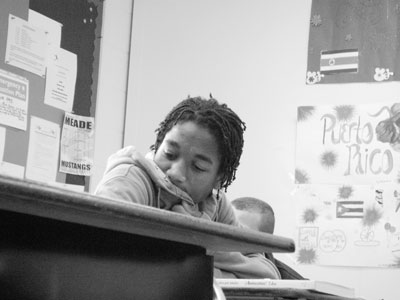All Nonfiction
- Bullying
- Books
- Academic
- Author Interviews
- Celebrity interviews
- College Articles
- College Essays
- Educator of the Year
- Heroes
- Interviews
- Memoir
- Personal Experience
- Sports
- Travel & Culture
All Opinions
- Bullying
- Current Events / Politics
- Discrimination
- Drugs / Alcohol / Smoking
- Entertainment / Celebrities
- Environment
- Love / Relationships
- Movies / Music / TV
- Pop Culture / Trends
- School / College
- Social Issues / Civics
- Spirituality / Religion
- Sports / Hobbies
All Hot Topics
- Bullying
- Community Service
- Environment
- Health
- Letters to the Editor
- Pride & Prejudice
- What Matters
- Back
Summer Guide
- Program Links
- Program Reviews
- Back
College Guide
- College Links
- College Reviews
- College Essays
- College Articles
- Back
The Importance of Failure MAG
By the time I had finished my sophomore year, I had failed 11 classes. I finished freshman year with a 1.0 GPA. My guidance counselor had told my mother that at the rate I was going, I wouldn’t be accepted to any state school.
Now, you’re probably either thinking “Oh my God! What was wrong with you?” or “That’s nothing. You could have done way worse.” And yes, while I could have done worse, I also could have done much better. Yet somehow, during this time of failure, I miraculously learned how to never feel like one.
People don’t fail because they’re stupid, inadequate, or incompetent. While this is the message that is constantly being perpetuated, it isn’t even close to true. People fail because they’re not ready. The classes that I once had less than 50 percent in taught me more about myself than any class I did well in.
I needed to fail.
Prior to failing, I was obsessed with exceeding and would tear myself apart when I didn’t. In short, I felt most like a failure when I was succeeding. At a constant rate of achieving success, my ego built up rapidly, teaching me that any mistake was unacceptable. The first time I got a B, I came home and made a list of 100 things I needed to do to be better.
When failing in school, our first reaction is to criticize ourselves, our habits, and the way we think, when in reality, these have nothing to do with it. This year, I am retaking seven classes. I find it incredibly interesting that the things that once went right over my head, I am now thoroughly digesting and gaining interest in. Because I’m older, I am now ready to take on certain things that I wasn’t able to in the past. And I have learned that this is completely okay.
I go to a school where 80 percent of juniors take at least one International Baccalaureate class, most are engaged in extracurriculars, and they still have time for a social life. It’s easy to feel inferior in this environment. However, how do we know whether those students are happy with their lives and the constant cycle of being busy?
The fact is, their lives have nothing to do with mine. It doesn’t matter if you’re currently retaking a class full of freshmen as a senior. It doesn’t matter if you’ve had to retake the same class more than once. We must stop looking for opportunities to compare ourselves to others. Doing this will allow us to succeed as growing individuals.
The moment we truly succeed is when we are ready to. Learning how to fail and how to process failure is the most important thing I have taken from my education, and for that I am incredibly grateful. In a system where failing is looked upon as the worst possible thing you can do, it is extremely important to learn that it’s okay. By failing, you ultimately learn how to become the best version of yourself.

Similar Articles
JOIN THE DISCUSSION
This article has 0 comments.
